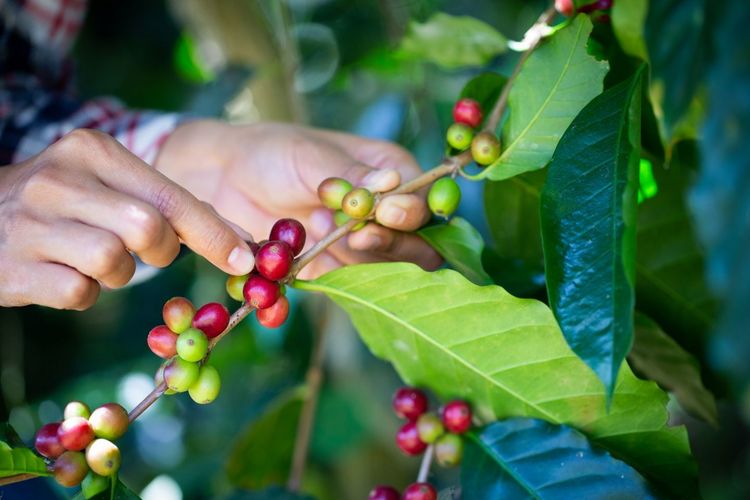Although there are more than 120 species of coffee, Arabica accounts for around 70 per cent of global coffee production. However, it is relatively intolerant of rising temperatures and susceptible to disease. To make matters worse, climate change is reducing the amount of land that can be used to grow coffee, and water scarcity is leading to significant yield losses.
Plant scientists are therefore looking for new Arabica varieties that are more resistant to disease and drought. As part of this work, the experts have developed an Arabica reference genome, which is now available in a publicly accessible digital database. This makes it easier to analyse different characteristics of this species of coffee in order to determine specific properties such as better yields, the size of the coffee cherries and greater resistance to disease or drought, as well as flavour or aroma characteristics.
“Once the new genome had been sequenced, it had to go through a process called annotation,” says Dr Jan Engelhardt. “For example, this involves identifying regions that contain information about the production of messenger RNAs. These ribonucleic acid molecules can essentially be translated into proteins.” But there are also “non-coding RNAs”, which have important functions in the regulation and coordination of every cell. “That is our speciality,” says Professor Peter Florian Stadler. “Working with our international colleagues, our group identified genomic regions that represent non-coding RNAs.” Alexandre Rossi Paschoal, a visiting scholar at the time, was also involved.
The reference genome will now help to identify important genetic markers in the Arabica genome that are responsible for certain characteristics in adult plants. The aim is to identify, select and breed new and improved varieties of Arabica coffee.
Publication in Nature Genetics: “The genome and population genomics of allopolyploid Coffea arabica reveal the diversification history of modern coffee cultivars” (auf Deutsch in etwa: “Das Genom und die Populationsgenomik von allopolyploidem Arabica-Kaffee offenbaren die Diversifizierungsgeschichte der modernen Kaffeesorten“
DOI: 10.1038/s41588-024-01695-w
































































